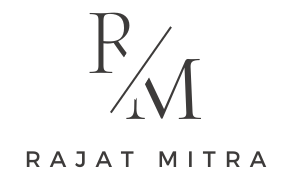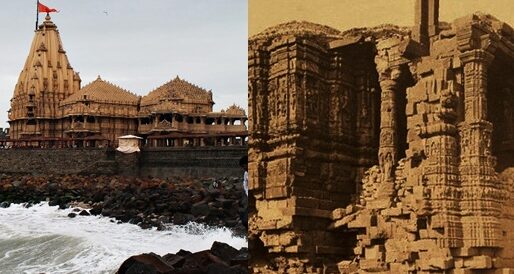Other day, I was taking a lecture on gender violence and trauma when the hand of a student went up to speak. She was from Kashmir valley she said and wanted to make a comment on what I had said on collective trauma. “People of my community are going through the worst period of their lives and the psychological trauma that you described just describes it so well,” she said and went on to add how they are fighting for their rights. She had not only connected the principle in the lecture with her life experience but had no hesitation in describing it before everyone. How did she, otherwise a shy student, suddenly find the voice, the motivation to speak up and make it real to everyone? It was as if she saw it as an opportunity not to miss it while other students listened?
“A class is a place for academic discussion and enquiry and is apolitical,” I told her as she wanted to talk more about the suffering of her people. It was a lecture on psychology and had begun to take on political overtones, so had to stop her. I asked other students if they would like to respond. There were others with possibly similar stories, but they didn’t speak up. Bringing it to a closure, I asked her where she got the drive to speak up and connect what she heard in the lecture with her real life experience.
“In our community all the children in our families learn it early in our childhood, and I can say it applies to almost all other families. Every discrimination and atrocity is made more real at every opportunity. We grow up discussing it threadbare over every meal and that’s what makes me speak up whenever I see a chance. We learn that it is our duty to speak up at every forum to highlight our plight. What my elders teach me and what my book tells me is final.”
As a teacher, I have taught about violence, trauma and discrimination for over thirty years in many forums. Never have I seen a Kashmiri Pandit student stand up and talk about his exodus, the historical discrimination and violence faced by them. Never have I seen a Hindu student from Pakistan or Bangladesh speak up about atrocities committed against his community.
I have lectured to students who were Black Americans, Jews, Native Americans. Most spoke up about their personal experiences when I mention genocide, slavery and extermination. Once while teaching on race and trauma, a Black student from South Africa had talked about how his brother and father had disappeared during apartheid never to be found again. The White students in the class had tears in their eyes. One of them mentioned feeling ashamed and they had given him an apology.
I see this behavior with many groups. Native Americans, Jews, Aborigines who don’t hesitate to speak up today when mention of trauma comes up. The motivation I see comes from within and begins from home, from the teachings by elders who pass it on to keep it alive and is so real that whenever a chance comes the wound surfaces and is seen as a moral duty of every young man or woman towards his or her community.
Why I don’t see it in the Hindus who have gone through one of the worst periods of history? Why our children, our young men and women don’t get up and talk about the trauma undergone by our forefathers, the atrocities committed on them because of slavery, conversion and discrimination?
Last year while promoting my book ‘The Infidel Next Door’, I had gone to a Hindu temple near Washington DC with my host where the Hindu priest was telling some Indian children about Hinduism. The talk remained about the deities, the trinity. The children were bored as I could see. The parents sat around. They were first generation Indian Americans, bothered about the detachment of their children from their religion and roots unlike children of other faiths.
“My child is teased about his religion and comes back crying. The children from other faiths do it and he can’t face it. So, I brought him over here so he could get some confidence to face them,” one of them said.
“Why don’t you teach him at home what it has meant to be a Hindu? The struggle of our forefathers, the sacrifices, the martyrdom they have gone through?”
“Teach what?” he looked incredulously at me. “I myself haven’t heard of it?”
I asked the priest if he knows. His blank face gave the answer.
Some time ago, I also had gone to a church and watched a children’s group conducted by a priest. He was telling them of the persecution of the Christians and how they fought to establish Christianity. He gave examples, spoke in an animated way, using many behavioral techniques I know taken from child pedagogy. He mentioned the missionaries as modern heroes spreading the message of Christ. The children listened absorbed and enthralled and when he asked in the end who all would like to be a missionary, all the hands went up. Smilingly he told them, “When you receive a call from Christ, you will do it but meanwhile must support the spread of Christ’s message in every way.”
This is true of education of most children belonging to Abrahamic faith but not ours. I wonder, when will the Hindu parents, the priests, teach their children the heroism, the struggle, the real history of our forefathers, our religious struggle to keep our faith alive, so they defend and take pride in our roots? Sitting at the dinner table when will we educate our children about what our forefathers or religion went through? That how many times we rose from the ashes? When will they take pride in why Hinduism still survives after so many invasions and conversions? That how the holiest sites of Hindus were desecrated and the struggle of the Hindus to reclaim them?
When a community’s elders choose to remain silent and don’t teach their children, the responsibility falls on only a few to speak up. That will not make the world believe in the narrative or make it a mass movement till every family of every unknown Hindu takes upon themselves the mantle to teach their children the right history of our faith.
The Hindu society today is chained under the garb of an ideology called ‘secularism’ thrust upon us, one that makes us slave of another kind. The race that sheltered Jews, Parsis and every other persecuted religion today, has to defend itself in front of the world even if a glass pane of a church is broken or the historical temples desecrated and broken are asked back to correct a wrong of history. Till we start teaching our children and our priests that temples are more than giving and taking ‘prasad’, that families must share the true struggle of Hinduism and is needed to protect our dharma, will we be able to save our religion in the coming centuries? Will our children, who have been quiet like they have been for centuries, ashamed and traumatized about their identity, be able to defend themselves, their faith?
Over the last one thousand years, the persecution of Hindus has wiped them off from many lands and their religion and identity is fighting for survival. Till the time every Hindu parent decides to teach his true history to his children, this culture of silence will exterminate our identity like it has done in Kashmir, Afghanistan, Pakistan, Bangladesh. The discovery of ruins of ancient temples and motifs across many countries only shows it is not limited to the above.
Will a Hindu student too get up in a lecture one day and tell his teacher before his class why his ancestors suffered, his civilization nearly got wiped out and what he heard about the struggle of his ancestors to keep his religion alive? I hope the day comes sooner than later and I know I am not alone when I think of that.
Rajat Mitra
Psychologist, Speaker and Author of ‘The Infidel Next Door’

